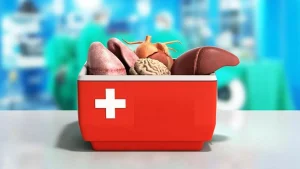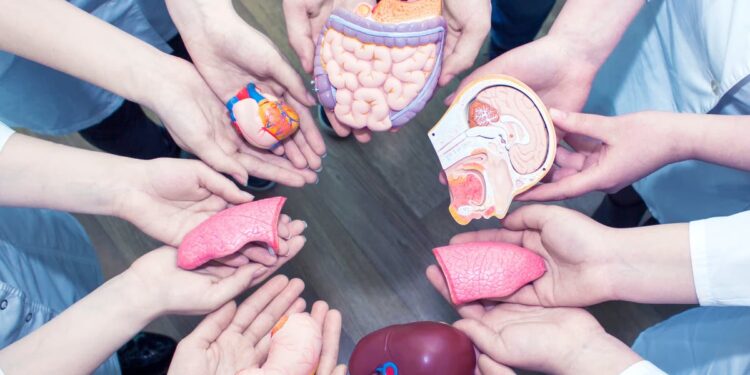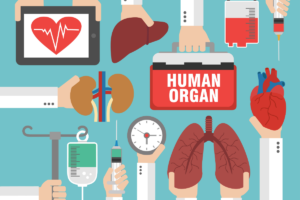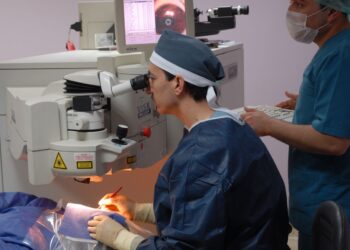What is organ and tissue transplantation in Turkey?
An organ and tissue transplantation in Turkey is a surgery that involves transplanting an organ, tissue or group of cells taken from one person (the donor) and then surgically transplanted onto an other person (the recipient or host) or moved from one site to another in the same person.
Transplants, such as a liver transplant, can save lives. They can also restore functions to improve quality of life. For example, transplanting the transparent tissue that covers the eye (cornea) is not necessary for life, but it can restore sight.
Organ and tissue transplantation in Turkey : the cost
As an indication, kidney transplant in Turkey is starting from 17000 €. And because each type of organ and tissue transplantation in Turkey (in Istanbul, Izmir, or Ankara) mobilizes a whole logistics and series of examinations, analyses, and studies, each type of transplant at a specific price.
Organ and tissue transplantation in Turkey : types
Organ and tissue transplantation in Turkey is a medecine complex area because when organs or tissues are transplanted from one person to an other, the recipient’s immune system can reject and destroy the donor’s organ or tissue. Drugs are needed to suppress this immune response. The treatment used vary depending on the level of compatibility between the donor and the recipient, the tissue or organ to be transplanted, and other factors.
Organ and tissue transplantation in Turkey : Tissue grafting in the same person
A graft or transplantation from one part of your body to another is called an autograft, and the process is called Autotransplantation.
Here are some examples of autotransplantation transplants
- Skin graft: uses healthy skin to help heal a wound or burn on another part of the body
- Blood vessel transplant: provides another route for blood flow to bypass a clogged artery, for example, in the case of heart bypass surgery.
- Bone grafting: reconstruction of a damaged area of the body, for example, in the case of a spinal fusion.
- Bone marrow transplantation: For example, in a person with cancer, bone marrow taken before the chemotherapy can supplant their blood stem cells after high-dose of chemotherapy.
The advantage of autotransplantation is that the person’s body is not likely to reject its own cells, so long-term drugs to weaken the immune system (immunosuppressants) are not needed. However, the removal and collection of tissue create a new wound in addition to the transplant site, from which the person will have to recover.
Organ transplant from other people
An organ transplant between two people who are not genetically identical is called an Allotransplantation, Allogeneic Transplant, or Homograft, and the process is called Allotransplantation. The donor’s organs and tissues may come from living people or people who have died due to significant brain injury or lack of circulation.
Allotransplantation in Turkey can create rejection in which the recipient’s immune system attacks the donor’s foreign organ or tissue and destroys it. The recipient may need to take immunosuppressive drugs for the rest of their life to reduce the risk of rejecting the donated organ.
For some organ transplants, particularly bone marrow transplantation, it is also possible that the immune cells of the given bone marrow recognize the host’s body as foreign and attack the host’s cells. This is called graft-versus-host disease (GvHD). Physicians can take steps to try to reduce the risk of GvHD.
An organ transplant between identical twins is called an Isograft. The recipient will rarely reject an isograft; therefore, immunosuppressants are unnecessary.
An organ and tissue donor can save lives or improve the quality of life of more than ten people. If you are interested in becoming an organ or tissue donor, register online for the Australian Organ Donor Registry.

Transplants from other species
An organ transplant between species is called a Xenotransplantation, or doctors perform the transplantation of organs or cells of animal origin into humans. Cow and pig heart valves have been used for many years to replace defective heart valves in humans. Valves from animals are treated before use to reduce the risk of valve rejection by the immune system. Heart valves can also be replaced by human valves (Allotransplantation) or mechanical heart valves. Organ and tissue transplantation in Turkey is a successfull area of the medicine.
Organ and tissue transplantation in Turkey :Transplanted organs and tissues
Organ and tissue transplantation in Turkey may involve:
- Organs: heart, kidney, liver, lung, pancreas, stomach, and intestine
- Tissues: cornea, bone, tendon, skin, heart valves, nerves and veins
- Cells: islets of Langerhans or cells of the pancreas, bone marrow, and stem cells
- Limbs: hands, arms, and feet.
Thanks to medical advances and ongoing research, innovations in organ transplantation are spreading to face transplants.
Multi-organ transplants, although less common than single organ transplants, occur annually. The most common multi-organ transplants in Turkey are those of the heart and lungs or pancreas and kidneys.
The approach to organ transplantation varies greatly depending on the type of transplant. Contact medical teams at organ transplant centers in Turkey to learn more about the modalities and prices.
Turkey ranked in the top three countries in terms of organ transplants from living donors because it is a technologically advanced country compared to many countries in terms of experience in the field.
What is the average cost of a kidney transplant in Turkey?
As an example for organ and tissue transplantation in Turkey, let’s consider the kidney transplantation in Turkey and in the world:
The cost of kidney transplantation in Turkey starts from USD 21,000.
It is better to opt for a kidney transplant over dialysis, which is quite inconvenient and expensive because the patient must go to the hospital every two weeks. The Turkish Ministry of Health has planned short- and long-term plans for patients to reduce costs and improve quality of life.
However, the cost varies depending on many factors and these are:
- Surgeons’ and Physicians’ Fees
- The number and type of compatibility tests performed between donor and recipient
- Total length of hospital stay
- Number of days spent in the ICU
- Cost of dialysis (if necessary)
- Post-operative visits for follow-up care
Comparison of costs with other countries
Kidney transplantation varies from country to country, depending on the above-mentioned factors.
Country |
Cost in USD |
|
Turkey |
$ 18,000- $ 25,000 |
|
Israel |
$ 100,000 – $$ 110,000 |
|
Philippines |
$ 80,900- $ 103,000 |
|
Germany |
$ 110,000- $ 120,000 |
|
United-States |
$ 290,000- $ 334,300 |
|
UK |
$ 60,000- $ 76,500 |
|
Singapore |
$ 35,800- $ 40,500 |














Discussion about this post